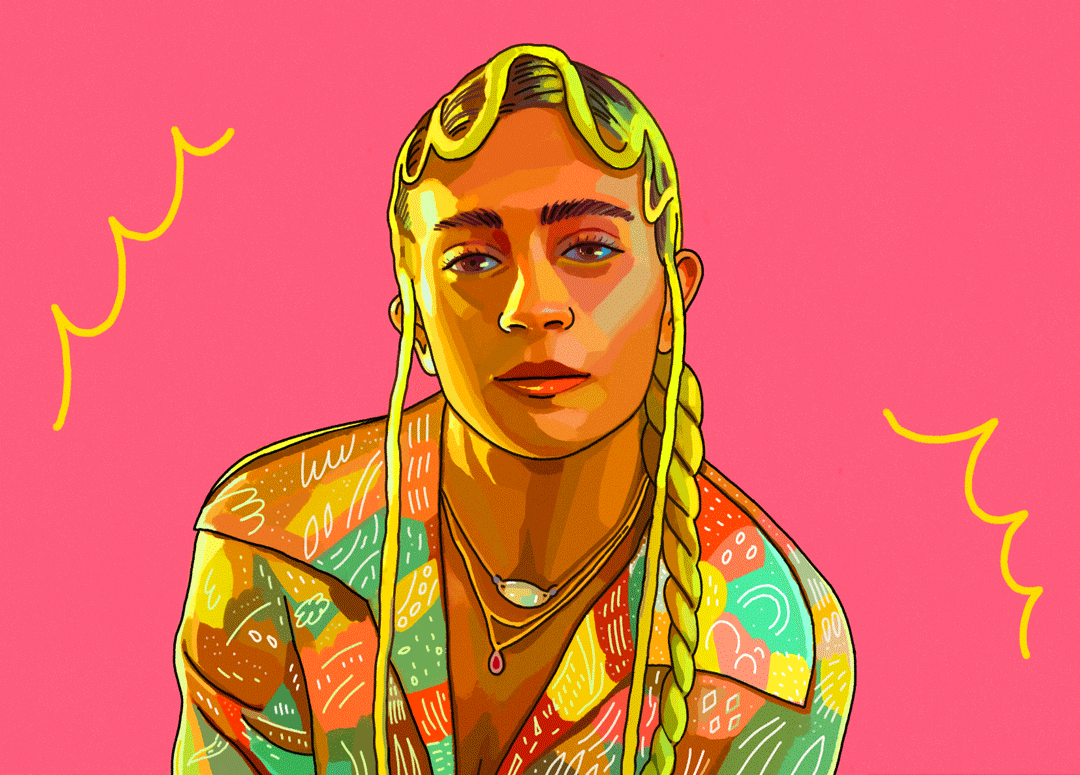
Menstrual Activist: Kiran Gandhi
Share
In 2015, a woman named Kiran Gandhi went viral for running the London Marathon, but it wasn’t because she had the fastest time or an eye-catching costume. No, Kiran Gandhi instead shocked the world by running the entire 26.2-mile marathon sin-tampon, with period blood visibly soaking through her tights. Emotions for onlookers ranged from disgusted to downright confused, but Gandhi says it was one of the most profound experiences of her life.
When she got her period the morning of the race, she said it was a disaster. She was worried about how uncomfortable it would be to run with a tampon in for 26.2 miles, not to mention the stress of it leaking. That’s when she decided to break boundaries and choose her own physical comfort over the discomfort of random bystanders. She writes on her website:
I thought, if there’s one person society won’t fuck with, it’s a marathon runner. If there’s one way to transcend oppression, it’s to run a marathon in whatever way you want. On the marathon course, sexism can be beaten. Where the stigma of a woman’s period is irrelevant, and we can rewrite the rules as we choose. Where a woman’s comfort supersedes that of the observer.
She also says that one of her main motivations for the decision was to represent women in underprivileged situations who don’t have access to tampons and pads.
But Gandhi had made a name for herself in other places long before the London Marathon stunt. In 2013, she was the touring drummer for musician M.I.A. before leaving her job at Interscope Records to study at Harvard Business School. In 2016, she released her debut EP Voices under the stage name “Madame Gandhi,” and in 2021, her song “Waiting For Me” won the ‘Best Music Video Award’ at the SXSW Festival.
Through her music and activism, Madame Gandhi focuses on female empowerment and fourth-wave feminism. Her London Marathon demonstration is only one example of her fight against global menstrual stigma. She has spoken at Airbnb, Pandora Radio, Spotify, the United Nations, and many college campuses about gender equality and liberation, and both her music and talks have been critically acclaimed.
Perhaps what is so remarkable about Gandhi is that she is the face of her own movement. She does not hide behind words or detached calls to action but instead physically demands change through demonstration, creates her own seat at the table, and isn’t afraid to make people uncomfortable to get her message across. She fights to end the taboo that surrounds periods, stating that they are forced into hiding because they make women “unfuckable.” By conforming to these taboos, we are reinforcing their origins. She wants women to reclaim the parts of themselves that patriarchal society has deemed unfit for public consumption and hopes to unite her sisters worldwide in an intersectional movement of the digital age that reaches people through music, curated talks, and public outreach.
